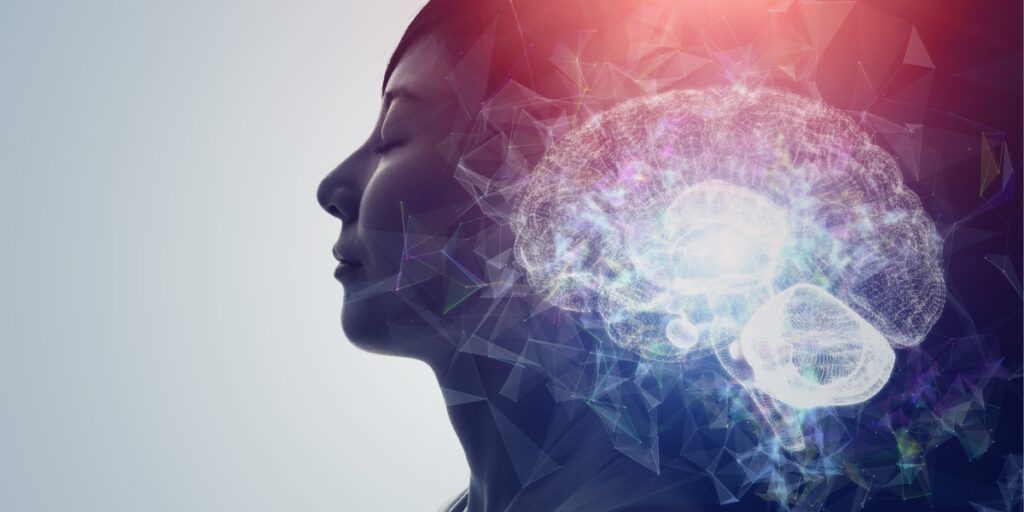Many people who struggle with mental illnesses have atypical levels of neurotransmitters and other brain chemicals. In some cases, this problem can be rectified with the use of prescription medication.
Of course, medications are not the only tools for accomplishing this. A nutritious diet, appropriate exercise, healthy social interactions, multiple forms of therapy, compassionate support, and positive feedback can all have a beneficial impact on brain chemistry.
Research suggests that an intervention known as NAD IV therapy can also help people who have been struggling with diminished cognition, depressed mood, intense anxiety, and other concerns that may be related to chemical deficiencies. NAD IV therapy is one of several adjunct services that we may recommend during a client’s time at Crownview Psychiatric Institute.
What Is NAD?
NAD stands for nicotinamide adenine dinucleotide. Depending on certain structural features, NAD may be referred to as NAD+ or NADH. By any of these names, NAD is an extremely important coenzyme that is naturally produced by the human body.
To understand the significance of NAD, it may be useful to first review a few fundamental facts about enzymes and coenzymes:
- Enzymes are naturally occurring proteins that are involved in the chemical reactions that occur inside our cells. Enzymes are responsible for several vital functions, such as digesting and extracting energy from food, building muscle and nerve cells, and eliminating toxins from the body.
- Coenzymes (which are sometimes referred to as cofactors) are nonprotein compounds that bind with enzymes. Coenzymes act as catalysts for cellular chemical reactions. Enzymes that are not bound with coenzymes cannot perform the metabolism-related tasks that are essential for the continued health of the body.
NAD, which is present in every cell in the body, is one of the most prevalent and valuable coenzymes. Without NAD, a cell could not generate the energy it needs to function. This would have a devastating effect on the body.
Insufficient NAD production has been associated with health concerns such as the following:
- Impaired sleep/wake cycle
- Weakened immune system
- Decreased muscle mass
- Slowed metabolism
- Obesity
- Insulin resistance
- Hypertension
- Heart diseases
- DNA repair problems
- Amyotrophic lateral sclerosis (ALS)
- Parkinson’s disease
NAD & Mental Health
In addition to the physical biological operations mentioned in the previous section, NAD is also involved with mental functions such as focus, concentration, and memory.
Studies have linked NAD deficiencies with neurocognitive disorders such as Alzheimer’s disease and Huntington’s disease.
Researchers have also associated NAD deficiencies with insufficient production of serotonin, dopamine, and norepinephrine. These three neurotransmitters play a key role in emotions and functions such as mood, sexual desire, reward, pleasure, and motivation.
Abnormal levels of these neurotransmitters can be risk factors for anxiety, depression, and certain other mental health disorders. Many of the medications that treat anxiety and depression target the body’s production and absorption of these neurotransmitters, with the goal of boosting their presence in the central nervous system. NAD therapy may offer an alternative means of accomplishing this objective.
External Sources of Enzymes, Coenzymes, & NAD
The body naturally produces enzymes and coenzymes such as NAD. But you don’t have to rely solely on your body’s ability to produce these essential elements.
For example, some fruits and vegetables contain enzymes. People who have cystic fibrosis often receive pancreatic enzyme replacement therapy (PERT), which involves a prescription medication. And various dietary supplements are marketed for their enzyme-boosting properties.
In the case of coenzymes, certain foods and medications can also be helpful. Meat, fish, and nuts are rich in Coenzyme Q10. Many vitamins, including B1 (thiamin), B2 (riboflavin), B12 (cobalamin), and K (phylloquinone) function as coenzymes.
In the examples above, people who are deficient in certain enzymes or coenzymes may be able to get what they need by from food or oral supplements Unfortunately, oral ingestion does not lead to full absorption into the bloodstream. For example, depending on which food a person eats or which supplement they take, they may absorb as little as 20% of its nutrients. This means that a significant amount of the enzymes or coenzymes may pass through a person’s system and be eliminated as waste.
However, when a person receives an intravenous (IV) injection, the full dose is delivered directly into the bloodstream. In the case of NAD IV therapy, this means that a person may receive maximum benefit from the supplemental NAD.
What Happens During a NAD IV Therapy Session?
Prior to a client’s first NAD IV therapy session, they will meet with a member of their treatment team to discuss the features and benefits of this service, talk through the procedure, and address any questions that the client has.
When the client arrives for their NAD IV therapy session, they will be seated in a comfortable chair. The professional who is providing this service will insert a small needle into the person’s arm. The needle will be connected by a thin tube to a bag that contains a combination of saline solution and nicotinamide adenine dinucleotide (NAD).
The only pain most people feel during NAD IV therapy is a slight pinch when the needle is inserted into their skin. Once the solution begins to flow from the IV bag into their bloodstream, most people report no discomfort whatsoever.
NAD IV therapy sessions are serene experiences. Once the infusion has begun, clients may read a book or magazine, watch a movie, listen to music, or simply close their eyes and relax.
The duration of the NAD IV therapy session can vary depending on several factors, such as whether or not it is the client’s first session and what amount of NAD/saline solution they are receiving.
Mental Health Benefits of NAD IV Therapy
The potential mental health benefits of NAD IV therapy may include the following:
- Improved mood
- Enhanced mental clarity
- Better cognitive functioning
- Increased focus and concentration
- Better memory
- Easing of depression symptoms
- Easing of anxiety symptoms
- Boosted energy and motivation
NAD IV therapy alone will not cure depression or anxiety, nor will it eradicate all symptoms of any other mental health concerns. But it can have a beneficial effect when it is incorporated into a comprehensive treatment plan that also includes multiple forms of therapy and related support services.
As is also the case with antidepressants and anti-anxiety medications, NAD IV therapy may affect the biological aspect of certain mental illnesses by boosting the presence of serotonin and other brain chemicals. This can be a valuable benefit, but neither medication nor NAD IV therapy alone can fully address the emotional, behavioral, and social facets of complex mental health concerns.
When an adult receives NAD IV therapy as part of their personalized care at Crownview Psychiatric Institute, this service will be integrated into a coordinated approach that is designed to promote long-term progress. In this context, NAD IV therapy can be an extremely promising intervention.
Learn More About NAD IV Therapy
To learn more about the mental health benefits of NAD IV therapy, or for additional information about any facet of treatment at Crownview Psychiatric Institute, please contact us at your convenience.




 Gianna Melendez
Gianna Melendez Jodie Dahl, CpHT
Jodie Dahl, CpHT